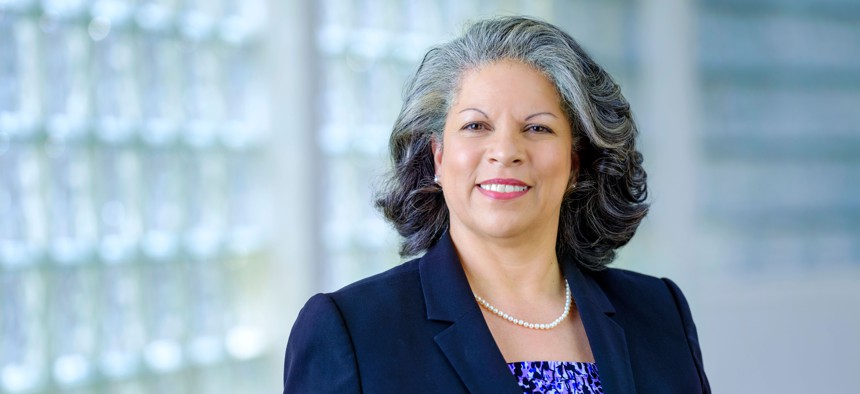Catalyst Award winner: Soraya Correa

Zaid Hamid
Over the course of a 40-year career in federal service, Soraya Correa looked for ways to make procurement more effective and more responsive to agency needs.
Acquisition is often seen as an obstacle in government — a daunting barrier to entry for new and innovative firms and an impediment to government teams looking to move quickly and efficiently on essential missions.
For Soraya Correa, however, federal procurement has always been about finding opportunities to make government work better.
"Yes, we have to comply with laws and regulations," Correa told FCW last year. "Our job is to make sure that we get compliance right. But we're here to support a mission. We're here to make sure that a mission gets executed, and that it's done right. And we can balance those two things. We can make those two things happen."
The former chief procurement officer at the Department of Homeland Security, who retired in 2021 after a 40-year career in public service, learned that balancing act early. Her federal career began almost immediately after high school, when her father — himself a career federal contracting officer — suggested that a job in government might help focus her future plans.
After a stint as a GS-4 clerk/typist and a night class in procurement and grants management, Correa became a contract specialist at Naval Sea Systems Command, where she worked under a program manager, not in a procurement shop. "I really do credit that position with…instilling in me the sense of purpose I've never forgotten," she said.
NASA, the Environmental Protection Agency and DHS' Citizenship and Immigration Services all benefited from that sense of purpose over the years, but it was in the DHS chief procurement officer role that Correa was able to influence the acquisition conversation governmentwide. She pioneered the idea of real-time technology demos during the source-selection process and launched DHS' Procurement Innovation Lab, which supports program and contracting teams and has served as a model for other agencies. And she was arguably the government's strongest advocate for reverse industry days, where an agency hosts current and prospective vendors to find ways to enhance the acquisition process.
Ultimately, Correa said, those conversations are the key to successful procurements. By ensuring that all parties understand the mission at hand — something she continues to encourage through her advisory role at ACT-IAC — the practices Correa has championed can turn the acquisition process into a force for improving government.





